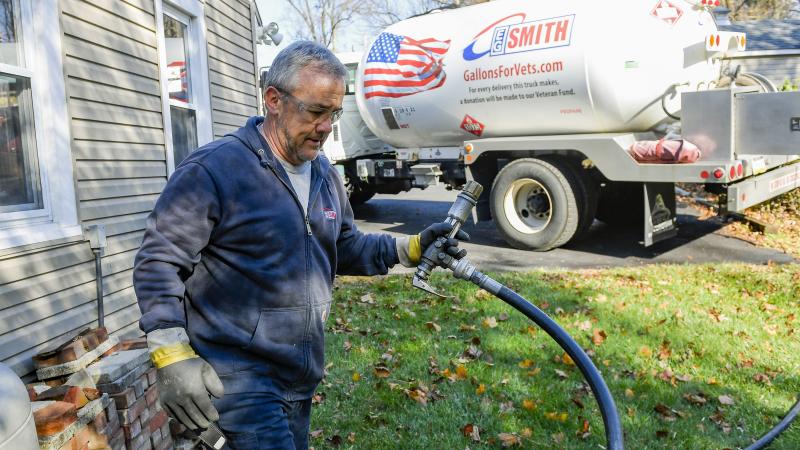Water shortages stonewall Biden effort to inject hydrogen into country's clean energy future
The Biden adminstration has touted hydrogen as a key green solution, but the reality of it appears to be much more complex.
An early Biden administration initiative to push hydrogen as a "roadmap" for America's clean energy future is now facing some big hurdles including water shortages and potential environmental hazards.
The initiative is part of the $1.2 trillion Infrastructure Investment and Jobs Act that President Biden signed into law during his first year in office with the stated objective of "establishing a clean hydrogen strategy and roadmap for the United States" through such projects as regional hubs to produce hydrogen.
However, the projects require an enormous amount of pure water for hydrogen fuel production. And nine of 33 projects set to receive federal funds are in "highly water-stressed regions," according to a recent report by Reuters.
One such location is the Gulf Coast port in Corpus Christi, Texas, where city officials are trying to secure up to $1 billion in federal funds to build a clean hydrogen hub in the region.
Corpus Christi is in a years-long drought that has resulted in the city restricting water usage for residents and businesses, with violators facing fines as much as $500 a day.
City Manager Peter Zanoni says Corpus Christi will need an additional 4 million gallons of water a day for its hydrogen hub to be operational. And that amount is in addition to the 25 million gallons the city already allocates daily to industrial companies under contracts, he said.
To help meet the demand and to boost the city's overall water supply, Zanoni said, Corpus Christie would likely need to install a desalination plant to convert seawater into freshwater.
However, such plants have raised concerns about being harmful to the environment.
A study published in Science of the Total Environment in 2018 found that desalination can produce large amounts of brine – a toxic waste that includes chlorine and copper.
Nearly 141.5 million cubic meters of brine is produced to generate 95 million cubic meters of freshwater, which is the equivalent to roughly 1.5 times more waste waste than clean water being produced through desalination, the study found.
The group Coastal Alliance to Protect the Environment told Energy Secretary Jennifer Granholm in a recent letter the Corpus Christi plant "makes no sense" as a green energy effort because it "destroys an entire ecosystem."
Last year, the Energy Department acknowledged desalination is "expensive, energy-intensive and disruptive to ecosystems."
However, the administration appears to be continuing with such efforts, as part of its broader agenda to achieve net-zero emissions by 2050.
The Energy Department has established an $8 billion hydrogen hub program, $7 billion of which will be used as grants for regional hub construction nationwide.
"These H2Hubs" will help "lift our economy, protect the planet, and improve our health," Granholm said last year.
Follow Addison on Twitter.
The Facts Inside Our Reporter's Notebook
















